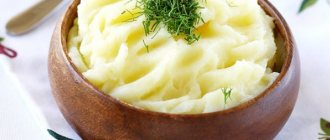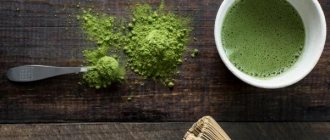- general information
- Pseudo-vegetarianism
- Lacto-ovo vegetarianism
- Lacto-vegetarianism
- Ovo-vegetarianism
- Veganism
- Additional classification
Vegetarians are different.
Their diet may differ, since there are a sufficient number of controversial animal products. They may not agree on a worldview about the relationship between man and the world around him... The slightest nuances divide this category of people into different camps. Open conflicts and confrontations rarely arise, but each of them is ready to defend their point of view on the correctness of their own food system to the end. Today, types of vegetarianism are classified mainly depending on what exactly they allow themselves to eat.
general information
All types of vegetarianism depending on diet:
- Lacto-vegetarians avoid meat, fish and eggs, but eat dairy products;
- macrobiotics - vegans who refuse to consume oils and sugar (bone charcoal is used to purify it);
- Young vegetarians eat white poultry and fish;
- mono-raw food eaters eat only one type of vegetable or fruit at one meal;
- ovo-vegetarians avoid meat, fish and milk, but eat eggs;
- Ovo-lacto vegetarians avoid meat and fish, but eat milk and eggs;
- Pesco-vegetarians refuse meat, but eat fish and seafood;
- Pesco-pollo vegetarians avoid red meat;
- Pollo-vegetarians refuse animal meat, but at the same time eat game, i.e. poultry;
- Semi-vegetarians limit the consumption of not only meat, but also fish and seafood;
- sproutarians - the basis of the diet is sprouted grains and sprouts, as a supplement - vegetables and fruits;
- sub-vegetarians - those who eat only those plants that do not have a strong odor (like onions and garlic);
- raw foodists refuse foods that have been processed by humans in any way (cooked, fried, salted, pickled, etc.), therefore they eat exclusively fresh plant foods;
- traditional vegans refuse any animal products: meat, fish, eggs, dairy products and even gelatin and honey;
- flexitarians are pseudo-vegetarians who consume meat in limited quantities, allegedly feel remorse for this, and on this basis still consider themselves to be part of this ideology;
- Freeganists eat meat only if it is free;
- Fruitarians are vegans who consume exclusively fruits, nuts, berries, and seeds.
All these types of vegetarians coexist safely, they are interpenetrable (that is, there are no clear boundaries and frameworks, you can move from one food system to another). Their diversity, on the one hand, is a rather positive phenomenon, since you can always choose which party to join so that you have like-minded people. On the other hand, most movements have appeared recently and have nothing to do with vegetarianism. That's why they come with the prefix pseudo-.
And if, in the classical sense, eggs and milk are indeed controversial products, whether they fit into this ideology or not, then, for example, game, red meat or fish have never been considered such.
The summary table will clearly show you the dietary features of a particular type of vegetarianism.
Notes on the table:
* - omnivores, who do not limit themselves in any way in food; *2 - without processing; *3 - at a time and only one type; *4 - fruits, nuts, berries, seeds; *5 - except onions and garlic; *6 - sprouted seeds and sprouts; *7 - moderate; *8 - game; *9 - only red meat; *10 – free only; *11 - white poultry meat.
This is interesting. It’s rare, but you can still meet old vegetarians today. Their history goes back to the colonization of India by the British. The two nations lived (albeit in conflict) side by side for many years, and therefore actively adopted each other’s food traditions. This is how people appeared who ate fish and seafood and also allowed themselves to feast on poultry and pork - all other types of meat were prohibited for them.
True vegetarian options
So, taking into account the options for motives, you can figure out what vegetarianism is. This is an awareness of the value of every life along with your own. No one would like to eat their own leg or give a friend a handbag made from their skin. A vegetarian has the same attitude towards the body of animals.
But even in this case, vegetarianism can be different, and may not be vegetarianism at all. First, let's get acquainted with the true culture, and then learn about fakes, so as not to fall into the trap of fashionable diets.
True vegetarians can be called differently:
- lacto-ovo vegetarian;
- lacto-vegetarian;
- ovo-vegetarian;
- vegan.
Lacto-ovo vegetarian. What we have before us is the most common form of this philosophy. Almost everyone is familiar with its canons. Such a vegetarian completely denies violence against living beings, does not eat meat, and does not wear clothing of animal origin. It feeds on all the flavors of the plant world, this includes mushrooms, fruits, berries, nuts, and cereals. He can also treat himself to dairy products and eggs, since they are obtained without killing.
In terms of practice and switching to such a diet, this is the easiest option, since the menu here is quite extensive. With the help of approved foods, a lacto-ovo vegetarian can imagine and experiment with dishes. This cuisine boasts an assortment and choice no less than that of meat eaters: pies, desserts, warm salads, soups, etc.
The opinion of nutritionists: of all types of vegetarianism, this is considered the most balanced, and therefore not dangerous. Thanks to milk and eggs, the diet replaces missing nutrients.
Lacto-vegetarian. This type differs from the previous one in that it does not allow the consumption of eggs. This choice is justified by the fact that the egg was not intended by nature for a person to eat it. The bird carries it for future offspring. If a lacto-ovo vegetarian understands that offspring are only possible if the eggs are fertilized, then for this type this is not an argument at all. Lacto-vegetarianism implies that the egg is intended to continue life and should not be eaten. But their menu still includes the entire list of plants, grains, mushrooms and all dairy products.
The opinion of nutritionists: a less balanced diet is not suitable for everyone; for example, due to health reasons, a person may lack protein.
Ovo-vegetarian. These guys don’t see anything wrong with eating eggs - they are not fertilized and cannot give life, and besides, no one killed a chicken for eggs. But they have a different attitude towards dairy products - they don’t have anything dairy on the menu. It should be noted that the motive for such a menu is more health improvement. Adherents of this type of nutrition argue their choice by saying that animal milk is not suitable for our body (it contains a lot of fat, it is poorly digested, etc.), but eggs are excellent and do not harm anyone. As in other cases, such a vegetarian can afford any plant food.
Opinion of nutritionists: compared to lacto-vegetarianism, there are fewer attacks from scientists in this case, since animal milk really causes heated debate among doctors.
Vegan. This is a fanatic in the field of vegetarianism, a tough ascetic, a critic and a defender of this planet. He does not eat meat, eggs, milk, fish or anything related to them. People who are far from the topic are especially surprised by the refusal of honey. Beekeeping products are banned, since bees need honey more, and people mercilessly take it, use it as they want, and generally exploit the bees.
A vegan can condemn all other vegetarians; for him, both the one who eats eggs and the one who drinks milk are wrong. After all, even if the animal is not killed for these products, they are kept in terrible conditions and used for their own purposes, but in the end they will still be killed. In fairness, it is worth noting that this is true. The vegan menu contains only greens, mushrooms, cereals, fruits, and vegetable oils.
Opinion of nutritionists: doctors have a negative attitude towards such a nutrition system. Only a few justify the possibility of an absolute plant-based diet, and then only for a while, and not on an ongoing basis. Plant foods alone cannot fully cover the list of vitamins and minerals a person needs.
And even that's not all. There are people who can give even a vegan a head start. For example, raw foodists are a separate caste of people. Their motive is often not only love for the world around them, but, above all, for themselves. Raw foodists believe that the most benefits can be obtained only from those products that have not undergone heat treatment. True, not all of them are true vegetarians; the main thing here is to eat raw. Whatever you can eat raw, eat it. For example, some still allow themselves dried mushrooms or even dried meat or corned beef.
But most raw foodists adhere to the philosophy of the inviolability of a living being. They feed mainly on greens, berries, nuts, and vegetables. When considering types of vegetarianism, one cannot fail to mention fruitarians. This is about who the doctors have the most concerns about.
Fruitarians feed exclusively on fruits that do not require the destruction of the entire plant to collect.
For example, in order to dig up a potato, we destroy the entire tuber - that’s bad, we don’t need to eat it. But you can have apples, because the apple tree continues to grow after the harvest.
As you can see, there are many options. However, having decided to switch to such a diet and worldview, you should do it gradually and learn about the correct transition to vegetarianism. The main thing is not to go to extremes: fruitarianism, even in the opinion of many vegans, is rather a torture of one’s body.
Pseudo-vegetarianism
Recently, the number of so-called pseudo-vegetarians has increased, who are not ready to completely give up meat, but at the same time claim that they are adherents of vegetarianism. Most often, they simply limit the amount of meat in their diet or refuse some kind of meat. Some do this while dieting to lose weight. Others follow fashion and even try to show interest and participation in the fate of animals innocently killed for food for humans.
In fact, true vegetarianism is a complete rejection of any meat, be it animals, poultry or fish, red or white, boiled or fried. Those movements that do not comply with this criterion come with the prefixes pseudo- or false-.
There are pseudo-vegetarians whose diet is sometimes brought to the point of complete absurdity. For example, freeganists at a party will not refuse to eat a piece of meat, because it is served for free and will still either be thrown away or eaten by another person. But they themselves do not buy this product, so as, supposedly, not to become a participant in the “global slaughter” of animals.
Famous vegetarians
Many famous personalities of the past and present adhered to vegetarianism:
- Henry Ford
- Thomas Edison
- Leonardo da Vinci
- Lev Nikolaevich Tolstoy
- Bruce Lee
- Uma Thurman
- Richard Gere
- Paul McCartney
- Natalie Portman
- Mike Tyson
- Carl Lewis
This is an incomplete list of those who have given up consuming animal foods.
Refusal of meat
Vegetarianism, in whatever form it may take, should not be the object of fanaticism. A person must closely monitor his health.
Lacto-ovo vegetarianism
Despite the fact that such different types of vegetarianism coexist in the modern world, our task is to consider the classical movements in more detail. These include primarily lacto-ovo/ovo-lacto vegetarianism.
Are eating:
- dairy products;
- eggs;
- plant foods;
- honey, butter, sugar, gelatin - optional.
Don't eat:
- meat;
- fish;
- seafood;
- cheeses due to the content of rennet, which is produced from the ventricles of ruminants.
Weekly norm (which prevents the development of nutritional deficiencies):
- 5 servings of vegetables;
- 4 servings of fruit;
- 11 servings of grain dishes;
- 8 servings of dairy products (it is better to replace fresh milk with any fermented milk products);
- 7 eggs.
Pros:
- balanced, varied diet;
- reducing the risk of deficiency of vitamins, minerals and especially protein, which they get from eggs and dairy products;
- is an ideal nutrition system for athletes who care about their muscle mass: with regular training, you can hone your figure and make it fit and sculpted;
- there is no risk of osteoporosis and other problems with the musculoskeletal system of the body, since milk is an inexhaustible source of calcium;
- the ability to lead a normal lifestyle;
- the risk of developing diseases such as cardiovascular diseases (this is associated with a decrease in blood cholesterol levels), hypertension, diabetes mellitus, obesity and oncology is reduced.
Minuses:
- there are contraindications: chronic diseases, pregnancy, lactation, age under 16 years;
- Frequent consumption of eggs and milk can lead to intestinal disorders, so these products should be included in the diet in doses.
Lacto-ovo vegetarianism can be considered as the first step towards establishing a new way of life. As practice shows and doctors say, you cannot immediately become a pure vegan, as this is fraught with serious health consequences. The diet needs to be changed gradually. Therefore, this type of vegetarianism is the ideal bottom step in this pyramid.
On a note. The only pure form of vegetarianism is veganism. For all other trends in popular science literature there is another name - hybrids.
Varieties
Below is a table describing the types of vegetarianism
| Type name | What can you eat? |
| Lacto-vegetarianism | Plant foods, dairy products |
| Ovo-vegetarianism | Plant foods, eggs |
| Lacto-ovo vegetarianism | Plant foods, dairy products, eggs |
| Raw food diet | Unheated plant foods |
| Veganism | Plant food |
| Mono-raw food diet | Plant foods that are not mixed in one go |
| Fruitarianism | Fruits of plants, greens |
| Pescetarianism | Plant foods, dairy products, eggs, fish, shellfish, crabs |
| Pollotarianism | Plant foods, dairy products, eggs, fish, shellfish, crabs, poultry |
| Flexitarianism | Plant foods, dairy products, eggs, fish, shellfish, crabs, sometimes meat |
All of these types of nutrition vary depending on the foods included in the diet.
Lacto-vegetarianism
A very large number of those who are considered vegetarians adhere to this type of diet. Lacto-vegetarianism is a type of diet in which all animal foods except dairy are excluded from the diet. Accordingly, dairy products are the main source of protein for those who practice such a diet.
What can you eat with this diet? Any plant food, as well as all dishes and products containing milk - fermented milk products, cheese, cottage cheese, etc. However, those products in the preparation of which gelatin and animal rennet are used are excluded from the diet by adherents of this food system.
Lactovegetarianism is most popular among those who profess Buddhism and Hinduism, which preach the principles of non-violence. However, a lacto-vegetarian is not always someone who professes these religions. Many people practice this diet for the purpose of health improvement. , blood cholesterol levels quickly decrease At the same time, the body receives a sufficient amount of calcium, vitamin D, and essential amino acids .
Reviews indicate that very often lacto-vegetarianism is an intermediate step on the path to veganism. As a rule, it is much easier for a person to switch to such a diet and only after some time to leave exclusively plant foods in the diet.
Ovo-vegetarianism
Ovo-vegetarians , in addition to plant foods, also consume eggs. Their philosophy is that, unlike lacto-vegetarians, they do not consider eggs to be a product of killing animals. Ovo-vegetarians argue that people consume unfertilized eggs, which means that no harm is caused to animals. In addition, adherents of this diet are convinced that the body needs animal protein.
Ovo-lacto-vegetarianism
This type of vegetarianism involves consuming not only plant foods, but also eggs and milk. It is believed that among vegetarians in the world there are the most adherents of this particular variety. Ovolacto-vegetarianism is easy to practice, because it is a fairly relaxed nutritional system. It is not difficult to switch from a regular diet to it, since the recipes for lacto-ovo vegetarianism are quite varied. In this case, the menu turns out to be balanced, because the body receives animal proteins, essential amino acids, and a number of other components important for health. This is why nutritionists view this diet more favorably than veganism.
But even in this case, it is very important to combine foods correctly, consume a variety of foods every day and try to balance the menu as much as possible.
As an advantage of such a food system, one can note the fact that its adherents can easily provide themselves with adequate nutrition by visiting cafes and restaurants, where you can find enough suitable dishes on the menu. Also, many products can be purchased in retail chains and markets.
However, this type of vegetarianism often causes some disapproval among vegans, who believe that both eggs and milk are products of animal exploitation.
Veganism
Vegans follow a fairly strict diet, refusing any food of animal origin. Very often, “uninitiated” people do not fully understand how a vegan differs from a vegetarian. The difference between these terms is that vegetarians are a more general concept, and their diet can be quite varied. As for vegans, they have certain dietary rules. That is, the main differences are that veganism is a subtype of vegetarianism. Many people perceive veganism as a stricter form of vegetarianism. In essence, vegetarians and vegans are two different concepts, and the question of how their essence differs is, by and large, incorrect.
Vegans eat exclusively plant foods, and sometimes refuse bee products. As a rule, people practice this diet for ethical reasons, completely excluding those products and things in the production of which, in their opinion, animals suffer.
A vegan diet has many health benefits. Vegans have clearer, healthier skin and better digestion due to the constant presence of fiber . With a plant-based diet, the load on internal organs and the excretory system is reduced, and a person’s overall well-being improves. Thanks to this diet, the nervous system of vegans is stronger, which allows them to demonstrate a pronounced resistance to stress.
However, no matter how hard vegans try to eat as balanced and varied as possible, they still lack those important components for the body that contain exclusively animal products.
When switching to this food system, people use two methods: either they do it abruptly, or they practice a gradual transition, first adhering to ovo-lacto-vegetarianism or other, less strict principles.
Pescetarianism
Another type of vegetarianism is called pescatarianism . This is a food system and way of life in which people do not consume the meat of warm-blooded creatures. With this diet, consumption of fish, shellfish, and crabs is allowed. As for eggs and milk, these products can be either prohibited or permitted.
This movement is also called young vegetarianism. Its adherents believe that the meat of warm-blooded animals can negatively affect the body, since it contains a lot of saturated fat. As for fish and seafood, they contain a lot of Omega-3 and other substances that are very important for the body. Therefore, every pescatarian believes that such a menu is the healthiest and optimal.
As for ethics, pescatarians believe that eating warm-blooded animals is close to cannibalism. In addition, they, like other vegetarians, associate their principles with a reluctance to make warm-blooded animals suffer.
Pescetarians receive a certain amount of animal protein, but still the basis of their diet is plant foods.
Pollotarianism
This trend is the most “democratic” in terms of food consumption. After all, pollotarianism is a nutritional system in which people exclude red meat from mammals from their diet, but their menu still includes poultry, fish, eggs, and milk. Some sources define this type of nutrition as young vegetarianism. From a medical point of view, this type of diet is justified by the fact that red meat contains a lot of saturated fats, which are harmful to the body. There are even a number of scientific studies confirming that consumption of red meat is harmful to the body.
But, in addition to medical reasons, people practicing such nutrition are guided by ethical as well as religious reasons. They believe that the presence of a central nervous system in mammals is an argument that killing them is not humane.
Raw food diet
This type of nutrition is also called live nutrition. When following a raw food diet, all animal products are excluded from the diet, and plant foods are not thermally processed. With this diet, drying fruits and vegetables is allowed at a temperature not exceeding 40 degrees. Higher temperatures are not allowed, since this destroys many microelements, and such food can no longer be considered alive. Raw foodists eat nuts, vegetables, fruits, sprouted grains, smoothies, porridge (cereals are poured with warm water).
This type of nutrition is also used for treatment and prevention. Raw foodists themselves believe that such nutrition is the most rational for the body. There is a lot of varied literature about raw food diets from authors who are themselves raw foodists. For example, the famous writer Ari Yasan assures that a raw food diet is a direct path to health and longevity.
Fruitarianism
Another trend, called fruitarianism , involves the consumption of all plant fruits and greens. Fruitarians most often consume nuts and seeds in their green form. Adherents of this movement believe that human nature provides for the consumption of fruits. But not everyone can practice such nutrition. In addition, although fruitarians receive a lot of vitamins from food, their bodies are deficient in a number of other very important substances.
Mono-raw food diet
This type of raw food diet is different in that the products are not mixed with each other. For example, a person eats apples for breakfast, bananas for lunch, and plums for dinner. If the harm and benefits of a raw food diet , then the high digestibility of products is noted as a positive. Monoeaters claim that little energy is spent on digesting food, while they have high immunity , and they rarely get sick. However, despite the fact that reviews of the mono-raw food diet of those who practice it indicate excellent health, doctors say the opposite. In their opinion, such nutrition is not balanced, and a person does not receive enough of the elements he needs. Nutritionists note that this is a diet in which the body often acutely lacks minerals and other substances contained in animal food.
Flexitarianism
Flexitarianism is a predominantly plant-based diet that allows the consumption of meat.
Every flexitarian strives to eat as little meat as possible. However, it is not completely excluded from the diet. Vegans and representatives of other movements of vegetarianism often criticize this type of diet, arguing that “semi-vegetarianism” is unacceptable.
Lacto-vegetarianism
Another common type of vegetarianism is lacto-, i.e. those who consume dairy products (after all, in their opinion, there is no need to kill anyone for this), but at the same time refuse eggs along with meat. Explanation: an egg is a potential chick that, under certain conditions, could be born. This means that if you eat them, you automatically deprive him of such a chance.
Are eating:
- dairy products: yoghurt, kefir, colostrum, milk, whey, yogurt, ice cream, fermented baked milk, snowball, cream, cottage cheese, butter;
- plant foods;
- honey, butter, sugar, gelatin - optional.
Don't eat:
- meat;
- fish;
- seafood;
- cheeses;
- eggs.
Weekly norm:
- 6 servings of vegetables;
- 5 servings of fruit;
- every other day - a portion of legumes (they will make up for the lack of protein);
- 12 servings of grain dishes;
- 14 servings of dairy products.
Pros:
- possibility of a balanced diet;
- the risk of diseases of the musculoskeletal system and heart is reduced, since calcium is present in the menu every day;
- no need to give up your usual lifestyle.
Minuses:
- there are contraindications;
- a large amount of dairy products in the diet leads to fermentation and discomfort in the gastrointestinal tract.
In fact, lacto-vegetarianism, like lacto-ovo, can also be used as a springboard for further development in this ideology. The diet of these people contains all the necessary nutrients that will allow the body to work without interruption.
Disadvantages of vegetarianism
It is impossible not to respect people who, due to moral convictions, refuse meat, because... They don’t see any other options for themselves.
the disadvantages of vegetarianism are quite clearly visible . Namely, an obvious deficiency of some vital substances . And this is the only argument against it.
Long-term adherence to vegetarianism or veganism over the years leads to a sharp deficiency of vitamins and microelements. Iron, zinc, calcium, vitamins A, B2, B12, D, essential amino acids, are either absent from plant foods or present in insufficient quantities. At first glance, the content of microelements in vegan diets may be quantitatively sufficient. But their digestibility from plant products is very low.
Even healthy people can develop dysbiosis, hypovitaminosis and protein deficiency, which cause:
- anemia;
- swelling;
- indigestion;
- diseases of the cardiovascular and nervous system.
But the most sensitive to deviations from a balanced diet are children, adolescents, pregnant women and nursing mothers.
Ovo-vegetarianism
Unlike lacto-, ovo-vegetarians, life is much more difficult. They have to give up a wide range of dairy products. From their point of view, a cow is forced to give milk to a person almost all year round, and for this she needs to constantly calve. At the same time, the living conditions are often disgusting, animals are stuffed with various chemicals, and unwanted calves are taken to slaughter.
Are eating:
- eggs: soft-boiled, hard-boiled, in a bag, poached, omelette, shakshuka, mish-mash, etc.;
- plant foods;
- honey, butter, sugar, gelatin - optional.
Don't eat:
- meat;
- fish;
- seafood;
- cheeses;
- any dairy products.
Weekly norm:
- 7 servings of vegetables;
- 7 servings of fruit;
- 14 servings of grain dishes;
- 14 eggs;
- Every day your diet should include legumes or nuts as sources of protein and calcium.
Pros:
- such a nutritional system allows you to properly cleanse the body of everything unnecessary;
- there are no processes of fermentation, flatulence, which are characteristic of the lacto-vegetarian food system;
- suitable for building muscle mass during intense sports;
- Ovo-vegetarianism is ideal for people suffering from lactose intolerance.
Minuses:
- there are contraindications;
- heavy odor from the mouth;
- increased cholesterol;
- high risk of failure;
- stomach problems.
It is not recommended to choose this type to start with, since the lack of protein and calcium of animal origin is always a risk of developing cardiovascular diseases, muscle atrophy and pathologies of the musculoskeletal system.
What is vegetarianism
Vegetarianism is a food system in which products of animal origin are completely or partially limited: meat, fish, eggs, dairy products.
Vegetarians believe that vegetarianism is the future. Today, more than 1 million people around the world adhere to this nutritional system. About half are in India. Every year there are more and more followers in the world.
Among famous people I would like to mention such as Brad Pitt, Jared Leto, Paul McCartney. They have been following the principles of vegetarianism for a long time. Russian celebrities are no exception. Elena Temnikova, Sati Casanova, Laima Vaikule, Yolka and other singers have already given up animal food.
The main reasons for vegetarianism:
- religious;
- moral and ethical;
- medical indications;
- lack of funds;
- someone uses a plant-based diet temporarily to lose weight.
Veganism
Classic varieties of vegetarianism simply cannot exist without a pure line. Its adherents refuse products that have at least some connection to the animal world. They are also called pure vegetarians.
There are a huge number of movements within their camp, which are also not always clear in terms of ideology. For example, Sproutarians eat only sprouted seeds, since for them, pulling out roots and collecting fruits is also akin to “killing” plants. Among the fruitarians there is a branch whose representatives eat only carrion so as not to cause damage to trees and shrubs. Very strange sub-vegetarians who refuse plant foods with a strong smell - how can this relate to the “We don’t kill” ideology?
Are eating:
- only plant foods.
Don't eat:
- meat;
- fish;
- seafood;
- cheeses;
- dairy products;
- eggs;
- honey and other bee products;
- gelatin;
- oil;
- sugar.
Weekly norm (depending on different types of veganism):
- 14 servings of grain dishes;
- vegetables and fruits - in unlimited quantities.
Pros:
- guaranteed weight loss, since plant foods are low in calories;
- adherence to the basic principles of proper nutrition;
- acceleration of metabolism;
- good regular cleansing of the body;
- improvement of well-being.
Minuses:
- poor diet;
- unbalanced diet;
- risk of anemia and iron deficiency;
- a long list of contraindications;
- sharp decrease in cholesterol;
- increased risk of colon cancer;
- bone density decreases;
- deterioration of blood circulation.
You should not start your acquaintance with vegetarianism with this type of it. Firstly, a sharp transition from the usual lifestyle and diet to such strict restrictions can end disastrously for health. Secondly, first you need to be imbued with a general ideology in order to withstand all these food taboos.
Related article: “Differences between vegetarians and vegans.”
Sometimes it happens. In fact, true vegetarians, regardless of which of the considered species they belong to, never condemn other people for their even opposing views on eating meat and other controversial products. Indeed, if they oppose the slaughter of animals, then they should treat their loved ones humanely. And yet there are fanatics who call ordinary people corpse eaters and murderers.
Vegetarianism in Ancient Greece and Ancient Rome
Like most ideas that currently exist in the Western world, vegetarianism first developed in ancient Greece. The most famous vegetarians of that time were Pythagoras and Porphyry, however, the list of supporters of vegetarianism can be continued with such names as Diogenes, Plato, Plutarch. The ancient Greeks gravitated towards vegetarianism for many reasons. For example, Pythagoras and his followers believed that animals have a soul on a par with humans, and after death the soul of an animal can be reborn in a person and vice versa. This idea directly resonates with the idea of reincarnation accepted in Hinduism, where most religious leaders and many ordinary people also adhere to vegetarianism.
Plato, in his Republic, describes vegetarianism as the most suitable diet for an ideal society. According to Plato, plant foods are preferable because they are the foods most conducive to human health, and also because their production requires less land than the production of animal foods.
The Romans, who adopted most of their ideas from the Greeks, also borrowed vegetarianism. The most famous vegetarians of ancient Rome are Ovid and Seneca.
The fall of the Roman Empire and the spread of Christianity in Europe led to the “Dark Ages,” including vegetarianism. In the Middle Ages, such Christian thinkers as, for example, St. Augustine, intellectually justified the killing, eating and, in general, the use of animals by people. They argued that only man has a soul and free will, while animals were created solely to be used by man for his own needs. This point of view is still the most common in the modern world.
However, the traditions of vegetarianism continued to live on in the medieval world. Many monks avoided eating meat in order to suppress the “animal” passions of their bodies. The Benedictines, Cistercians, and several other monastic orders of medieval Europe practiced vegetarianism during some periods of their history. In the 15th century, Europe rediscovered ancient philosophy, art and science. However, Europeans were not able to rediscover vegetarianism right away. Leonardo da Vinci, being a dreamer, was ahead of his time by adhering to a strict vegetarianism. He wrote in his diary: “From an early age I have had an aversion to eating meat and believe that times will soon come when people like me will treat the killing of animals in the same way as they now treat the killing of people.”
The real revival of vegetarianism can be dated back to the 18th and 19th centuries. It was during this time that Darwin's theory of evolution destroyed the idea that animals were fundamentally different from humans, and thereby eliminated religious and philosophical justifications for killing and eating animals. The new view was that animals differ from people only in their level of intelligence, but not in their nature.
This view of animals as our distant ancestors led to new humanistic reforms. It was at this time that the first serious studies on vegetarianism appeared. At the same time, the first author's works related to this issue appeared. Leo Tolstoy and Percy Shelley are examples of 19th-century writers who called for, among other things, the abolition of animal food and the killing of animals. For a time, the people we now call vegetarians called themselves followers of the Pythagorean diet. Later, the term “vegetarianism” appeared, derived from the Latin word “vegetus”, which means strong, active, energetic. In the 20th century, the vegetarian movement gained more and more popularity. Vegetarian communities appeared in almost every country, books and newspapers were published, and research was conducted to help better understand not only the ethical, but also the physiological side of this issue, the influence of a vegetarian diet on a person’s physical condition. In 1908, the Vegetarian Union was formed, whose main function was to organize conferences where vegetarians from all over the world could exchange information. This union exists and operates fully to this day.
Additional classification
Depending on the reasons that prompted people to join this ideology, vegetarianism can be of other types:
- healthy - if a person joined it in order to treat certain diseases, the cause of which may be the consumption of meat;
- ethical - the main trend in this block, designed to limit the killing and suffering of animals;
- religious - some teachings prohibit meat: Hinduism, Buddhism, Seventh-day Adventists;
- environmental - these vegetarians believe that raising animals for meat depletes the earth's natural resources;
- economic - farming is much more economically profitable than livestock farming.
Each of these types of vegetarianism has many followers who are ready to defend their point of view about proper nutrition. And if you are planning to join one of the movements, you should weigh the pros and cons, studying the slightest nuances in the products that they allow themselves to eat.
And remember that food is only the mirror surface of this lifestyle, which reflects the views of its adherents. The main thing is the ideology that is the basis of their inner world. "We don't kill anyone!" - this is what unites them and dictates the need to consume certain products.
What is veganism? The benefits and harms of a vegan food system.
- Veganism is a strict form of vegetarianism that involves eliminating all foods of animal origin from the diet. Including milk and dairy products, eggs and bee products
- According to research, the benefits or harms of veganism cannot be clearly determined. The task of a person who decides to switch to such a food system is to compensate for the intake of microelements from animal foods with plant foods.
- For a person who is superficially familiar with medicine and nutrition, this is quite difficult to do. A lack of vitamins and microelements can lead to serious diseases of internal organs and body systems
- We can definitely say that it is impossible to suddenly switch from eating meat to veganism. Moreover, you should contact a specialist who will help you balance your plant diet and recommend biological supplements containing the missing vitamins
veganism











